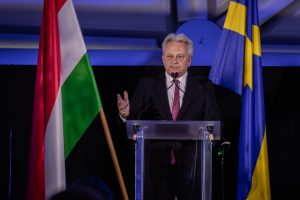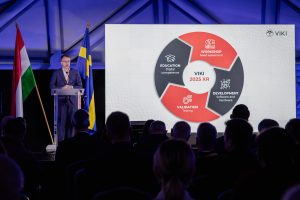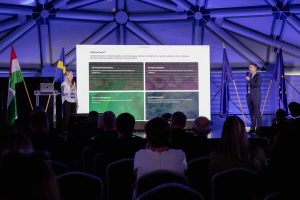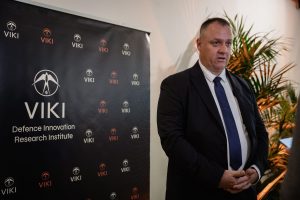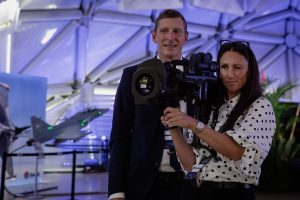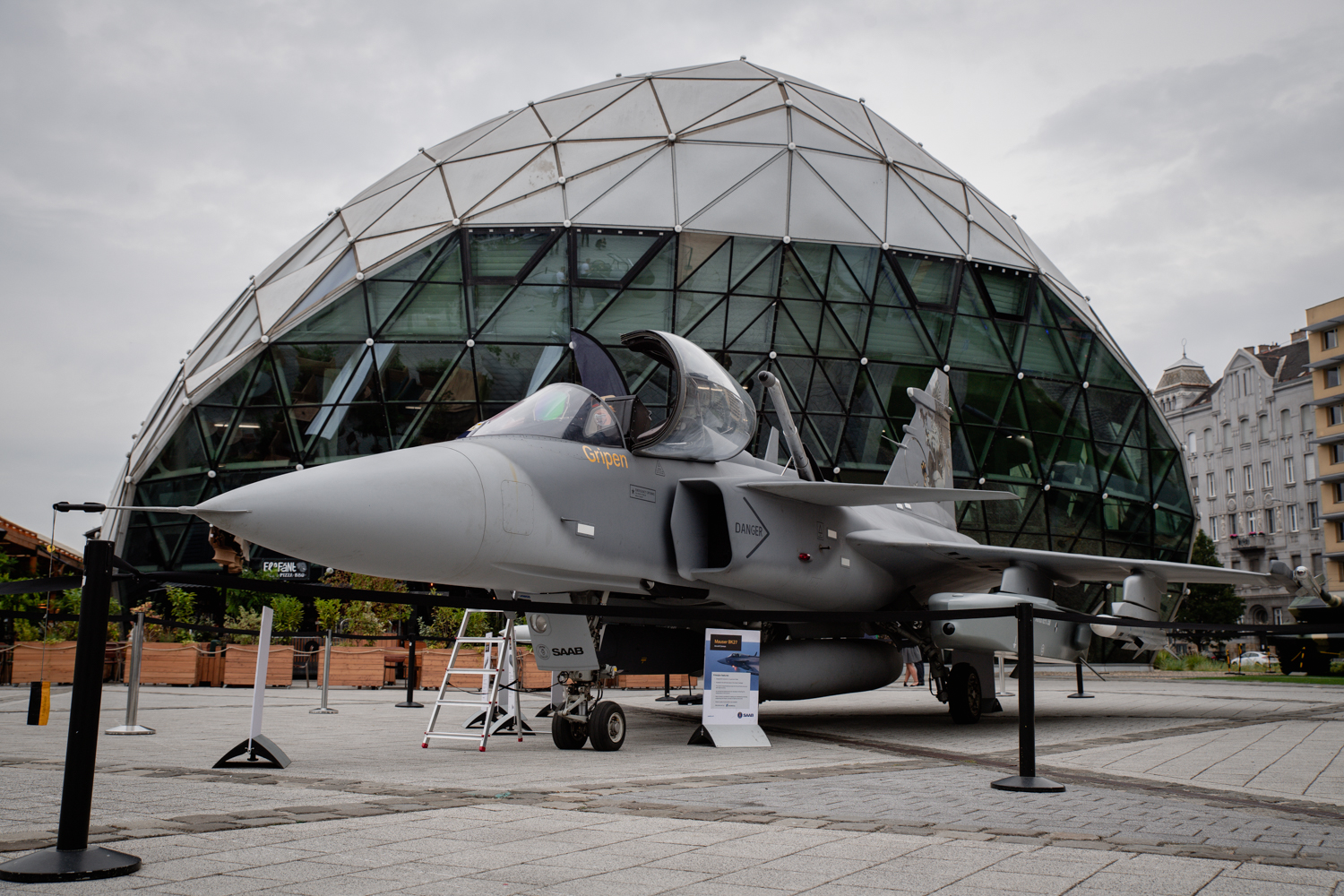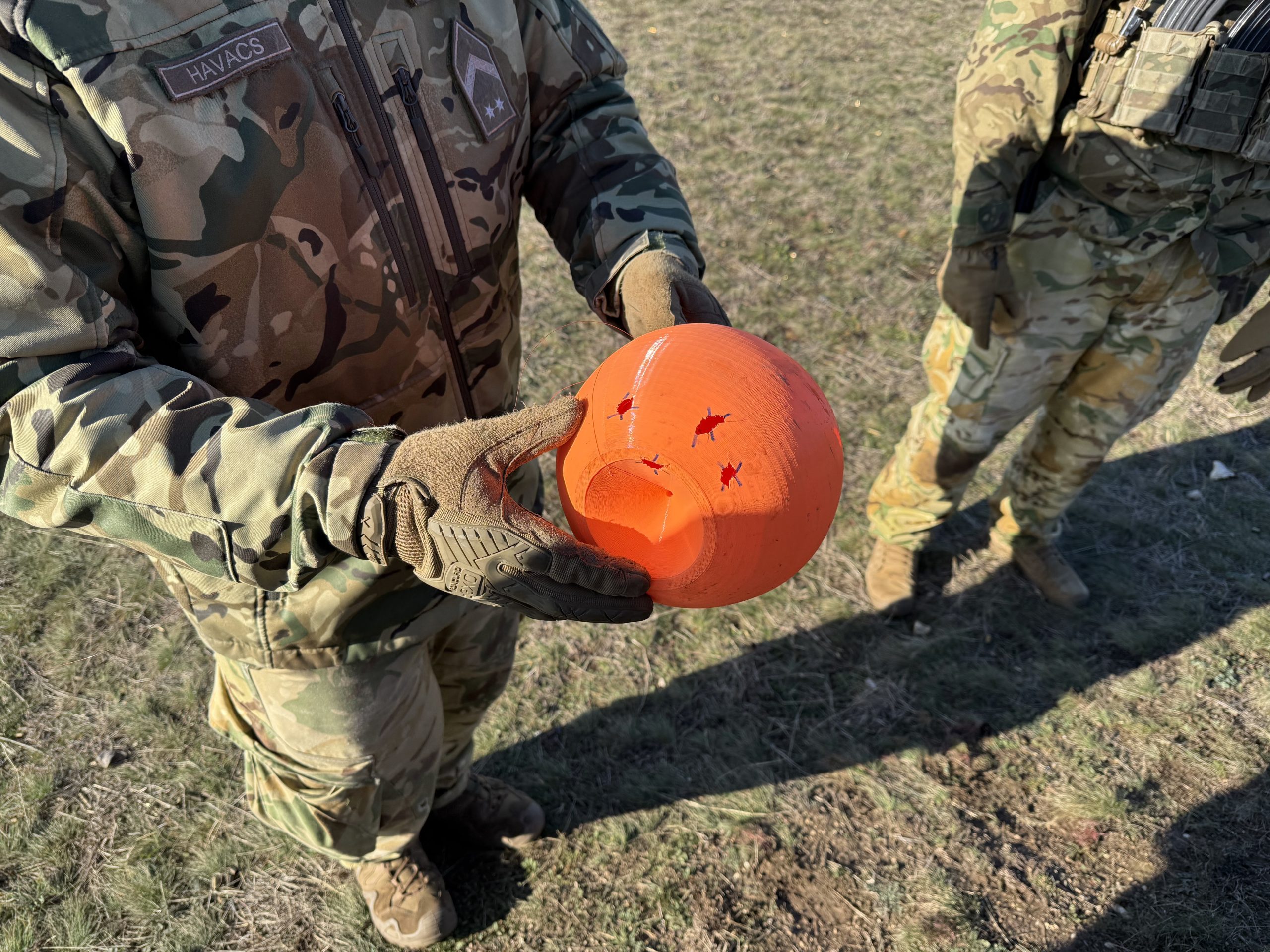On 10 September 2025, the Bálna Defence Centre in Budapest hosted the first joint conference of Saab and VIKI, dedicated to the future of air power and defence innovation. The event brought together government officials, representatives of the Hungarian Defence Forces, industry leaders, academics, and international partners.
Discussions focused on how emerging technologies — including artificial intelligence, additive manufacturing, software-defined systems, and extended reality — are reshaping the development and sustainment of military capabilities. Speakers emphasized, however, that the future of warfare will depend not only on new technologies but also on interoperability, modularity, industrial agility, and, above all, the preservation of human decision-making in increasingly complex operations.
The conference was opened by Tamás Vargha, Parliamentary State Secretary at the Hungarian Ministry of Defence, and H.E. Diana Madunic, Ambassador of Sweden to Hungary, who highlighted the importance of Hungarian–Swedish defence cooperation. Among the keynote contributions were remarks from Dr. Gergely Németh, CEO of VIKI, Per-Olof Marklund, CTO of Saab, and János Ritli, CEO of Saab Hungary.
Three roundtable discussions further deepened the debate, addressing technology-enabled air warfare, the role of industry in supporting 21st-century capabilities, and the question of whether innovation is best understood as a breakthrough or as the result of systemic effort.
The key takeaway was clear: defence innovation cannot succeed in isolation. It requires broad cooperation, connecting research with industry and linking national efforts to international partnerships. Hungarian–Swedish collaboration plays a pivotal role in this effort, strengthening both Europe’s and the transatlantic community’s collective security.
